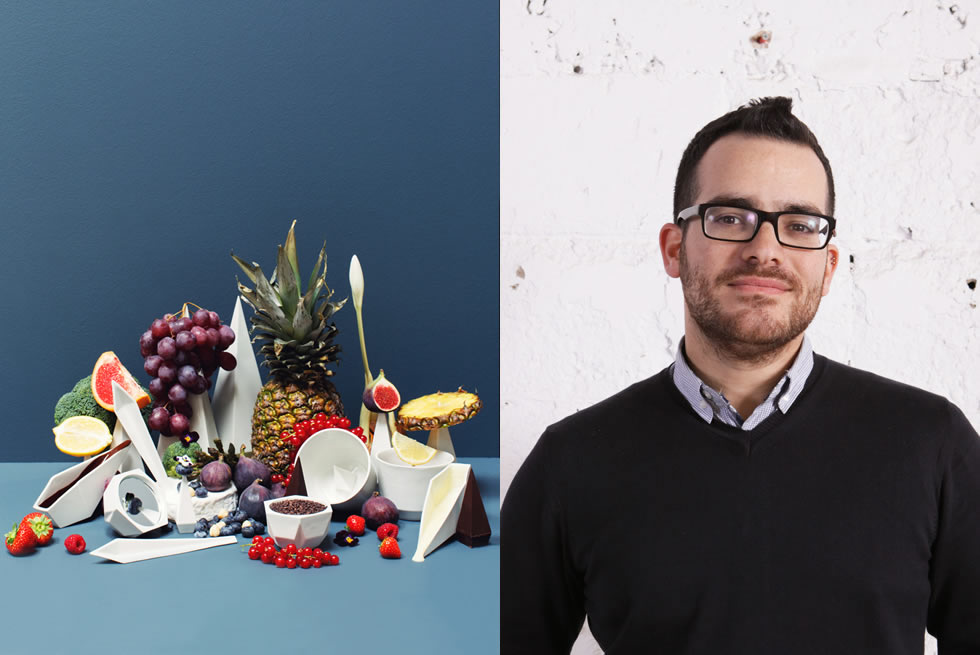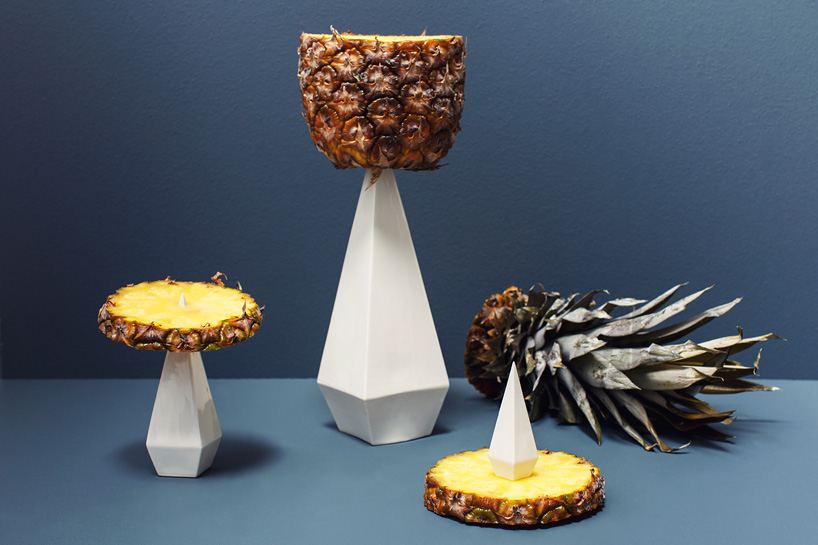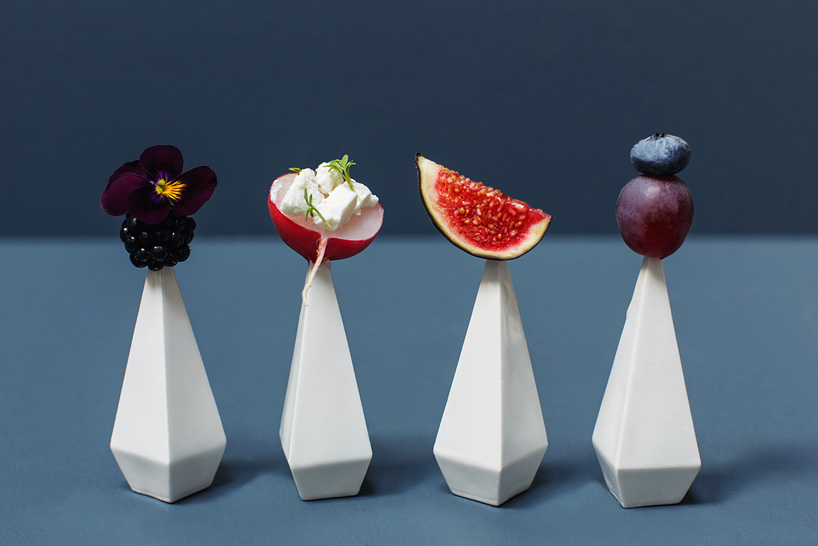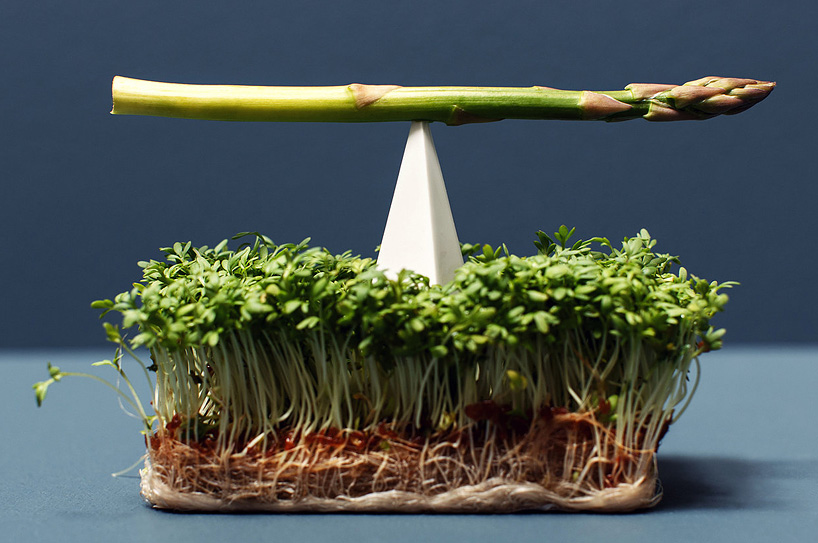
INTERVIEW WITH IDO GARINI, STUDIO APPÉTIT – Designboom Design Portal
Ido Garini is an eating experience designer and owner of Studio Appétit, whose practice involves the participation in an open-ended investigation of culinary culture and the emotions triggered by food. His projects underscore the interplay between the artistic palette and the sensory one, bringing together food, photography, utensils, crafts and even makeup to create a very specific oral, tactile, and aesthetic experience. One of his most recent undertakings has seen him delve into the decadence of food fetishists, and the ways in which design can satisfy extreme edible desires.

Pineapples interplay with the porcelain cone-shaped utensils
‘Luscious food cravings’ is a contemporary concept of multidisciplinary design, created in collaboration with dutch Studio Lenneke wispelwey. Together, the team has realized not only a collection of products for dining, but also an complete sojourn through the experiential activity of eating. The series of porcelain ‘dishes’ redefine shape and use, while the photographic documentation manifests as sensually composed portraits of ingredients, reminiscent of a rembrand still life. At Belgrade Design Week 2014, Garini spoke to an audience about his innovative approach to eating, and told Designboom more about his ‘luscious food cravings’, the varied team of creative and culinary and professionals involved in the project, and how design can satiate some of our wildest and most intense appetites.

A series of fruits and flowers are carefully situated on the cones
Garini on the design of objects for the ‘luscious food cravings’ collection: ‘the whole idea behind these cones is a new way to present food, to create a complete image of the cone with the food on top of it. It really glorifies the food in a way, because it becomes like an ornament that you can put on the wall like an art piece or still life object. We created this world of images, especially for the project. Our goal for the photography was to create something like a still life painting, so all of our photographs are inspired by still life paintings.’

Asparagus and edible plants are arranged to interact with the porcelain tools
Read the original news here.
Trackback from your site.
